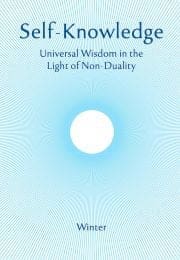Bhagavad Gita Chapter 18: Giving Up and Letting Go
The Bhagavad Gita Chapter 18, part one.
The final chapter of the Bhagavad Gita, the eighteenth, is the culmination and summary of the whole teachings.
It is one of several chapters that begin with a question. Here the student asks, what is the precise meaning of and difference between ‘renunciation’ (sanyasa) and ‘letting go’ (tyaga)?
We might wonder why the exact distinction between two such similar words should be important to the student at this point. But there is a reason why he wants to be clear about this, which we can understand by reviewing what came before.
The Gita begins with a situation that will feel familiar to many of us. The student is facing a crisis and feels that all the options are bad. He is paralysed by indecision and thinks it would be better to live on alms than to suffer or cause suffering in his present course.
The teacher advises him not to abandon the situation in which he finds himself, because it will not solve the difficulty. The fundamental problem is not in the world situation, but in his understanding of it, and of his own nature. The real solution to the student’s problem is to know the truth of his own being, that is, the reality in all.
The truth, we are told, is that there is one universal Self-Reality, untouched by divisions, conflicts, limitations or sufferings of any kind. It is the mind and senses that create separations, vulnerabilities and suffering. The way to the liberating knowledge is not to give up the world, which is not possible because the body cannot be removed from the process of cause and effect. The right step is to mentally let go of attachment to passing phenomena and events, including the results of our own actions. Living in this way will purify the mind and establish us in knowledge of the true Self. This is the essence of the teachings given in chapter two of the Gita.
The student does not fully understand what he has been told, and chapter three begins with him asking a question: ‘If you believe that knowledge is better than action, why are you advising me to continue in this terrible worldly activity?’ (He is caught up as a combatant in war.)
It has already been taught that it is action done in the right way which leads to knowledge, but as the student has evidently not understood, the teacher gives a further explanation. He says that how we should proceed on the path to Self-knowledge depends on our current standpoint. There are, he says, two standpoints, and two paths proceeding from them.
Subscribe or enrol for free guest access to read all of this article and Self-Knowledge online.
Already subscribed or enrolled? Log in:


